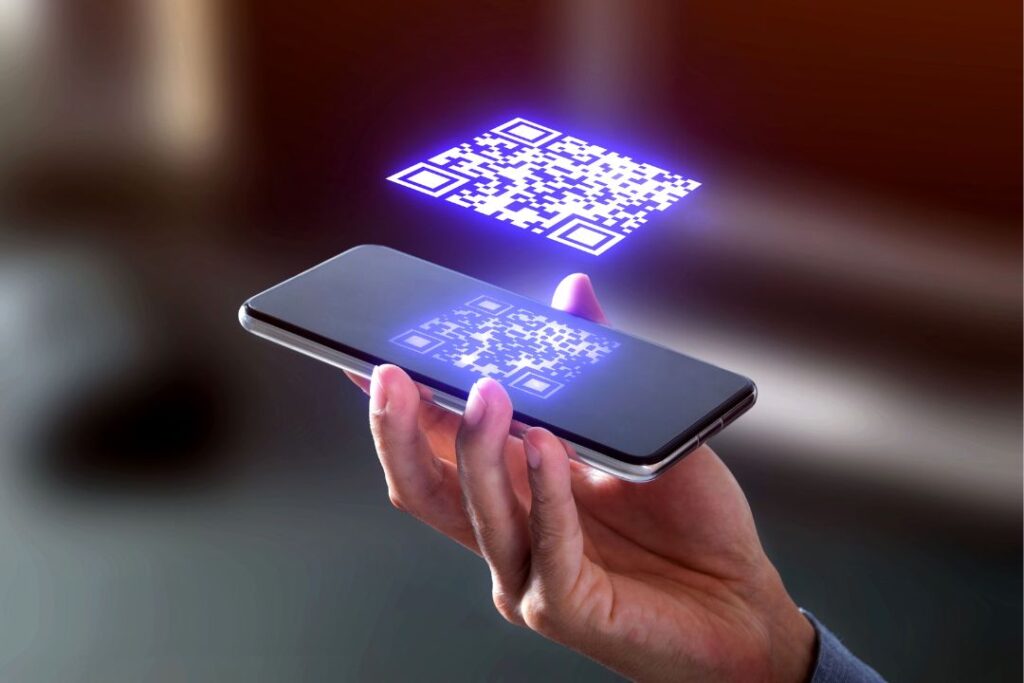Quick Response (QR) scanners have become an integral part of our digital landscape, bridging the gap between physical and online experiences. Originally developed in 1994 by the Japanese company Denso Wave, QR codes were designed to improve tracking in the automotive industry. However, their application has expanded far beyond their original purpose, now serving as a powerful tool in marketing, retail, healthcare, education, and security.
What is a QR Scanner?
A QR scanner is a device or application that reads and decodes QR codes, which are two-dimensional barcodes containing encoded information. Unlike traditional barcodes, which hold limited data, QR codes can store a variety of information, including website URLs, text, contact details, payment information, and Wi-Fi credentials. Modern QR scanners are predominantly mobile applications that use a smartphone’s camera to interpret the code instantly.
How Do QR Scanners Work?
QR scanners function by capturing an image of the QR code and processing it using an algorithm that deciphers the stored information. The process typically involves:
- Detection: The scanner identifies the QR code pattern.
- Decoding: The software extracts the data embedded in the code.
- Execution: The extracted information is then used to perform a predefined action, such as opening a website, making a payment, or saving contact details.
With advancements in smartphone technology, most modern devices come with built-in QR scanners, eliminating the need for third-party applications.
Types of QR Scanners
There are different types of QR scanners available today, catering to various needs:
- Smartphone QR Scanners: Integrated into mobile operating systems like iOS and Android, allowing instant scanning via the camera app.
- Dedicated QR Scanner Apps: Standalone applications with enhanced features, including batch scanning and history tracking.
- Handheld QR Scanners: Used in businesses for inventory management and point-of-sale systems.
- Desktop QR Scanners: Software tools designed for computers, enabling QR code scanning via webcam or external scanners.
Applications of QR Scanners
1. Retail and E-commerce
Retail businesses utilize QR scanners for inventory tracking, product authentication, and digital payments. Customers can scan QR codes on product labels to access detailed information, check reviews, or apply discounts at checkout. E-commerce platforms integrate QR scanning for contactless transactions, enhancing security and convenience.
2. Marketing and Advertising
QR codes have revolutionized marketing by offering an interactive way to engage customers. Companies use QR codes on advertisements, billboards, and packaging to direct consumers to websites, promotional videos, or social media pages. This enables brands to track engagement and measure campaign effectiveness.
3. Payments and Banking
Mobile payments have surged in popularity, thanks to QR scanners. Digital wallets like PayPal, Google Pay, and Apple Pay support QR-based transactions, allowing users to make payments with a simple scan. Businesses also use QR codes for invoice payments, reducing reliance on cash and cards.
4. Healthcare
Hospitals and pharmacies employ QR scanners for patient record management, medication tracking, and appointment scheduling. COVID-19 pandemic responses saw an increased reliance on QR codes for contact tracing and digital health passes.
5. Education
Teachers and institutions use QR codes to distribute learning materials, quizzes, and video lessons. Students can access additional resources by scanning QR codes embedded in textbooks or classroom presentations.
6. Security and Authentication
QR codes play a crucial role in two-factor authentication (2FA) and access control. Many online platforms require users to scan QR codes to verify logins or authorize secure transactions. Additionally, QR codes are used in digital tickets and event passes, reducing fraud risks.
7. Hospitality and Travel
Hotels and airlines use QR codes for mobile check-ins, digital menus, and boarding passes. Restaurants have replaced traditional menus with QR code-based ordering systems, improving hygiene and customer experience.
Advantages of QR Scanners
QR scanners offer numerous benefits, making them an essential tool in today’s digital world:
- Speed and Efficiency: Scanning a QR code takes only seconds, providing instant access to information.
- Cost-Effective: Businesses can implement QR codes at minimal costs, eliminating the need for printed materials.
- Enhanced Security: Encrypted QR codes ensure secure data transmission, reducing fraud risks.
- Eco-Friendly: Digital alternatives reduce paper waste, promoting sustainability.
- Versatility: QR codes can store diverse data types, making them suitable for various industries.
Challenges and Limitations of QR Scanners
Despite their advantages, QR scanners face certain challenges:
- Security Concerns: Malicious QR codes can redirect users to phishing sites or download malware. Users must verify sources before scanning.
- Dependence on Internet Connectivity: Some QR codes require an active internet connection to retrieve content, limiting functionality in offline environments.
- Device Compatibility: Older devices may struggle with scanning QR codes due to outdated camera technology.
- User Awareness: Not all users are familiar with QR scanning technology, requiring education and adoption efforts.
The Future of QR Scanners
The future of QR scanners looks promising, with continuous innovations enhancing their capabilities. Some emerging trends include:
- Augmented Reality (AR) Integration: QR scanners combined with AR can offer immersive experiences, such as virtual product demonstrations.
- Blockchain-Based QR Codes: Enhanced security measures can prevent counterfeiting and unauthorized access.
- AI-Powered QR Scanners: Artificial intelligence can improve scanning accuracy and offer personalized content based on user preferences.
- Offline QR Codes: Advanced encoding methods allow QR codes to function without internet connectivity.
Conclusion
QR scanners have transformed the way we interact with information, offering convenience, security, and efficiency across various sectors. As technology advances, QR scanning will continue to evolve, paving the way for more seamless digital experiences. Whether for payments, marketing, healthcare, or education, QR scanners have become an indispensable tool in the modern digital ecosystem.

